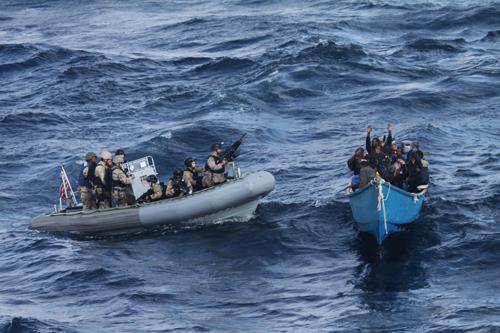
November 2012
An anti-piracy conference was recently held by maritime experts at the Mombasa Continental Resort in Kenya, bringing maritime security experts from across the continent.
The conference included a demonstration by the Kenya Maritime Authority’s Recgional Maritime Rescue and Coordination Center, which is based in the port of Mombasa.
The director of the Kenya Maritime Authority, Nancy Karigithu, spoke about the need to instill maritime domain awareness for coastal countries in the region, due to the recent security problems off the east coast of Africa.
“I acknowledge that maritime cooperation is now a necessary step in dealing with increasing maritime issues such as the crimes of piracy, terrorism, illicit trade and illegitimate exploitation of marine resources, and requires coordinated security awareness and broader collaboration in order to mount effective response to these threats,” Karigithu said.
Representatives from Kenya, the United States, Seychelles, Yemen, Belgium, Zambia, India, Mauritius, Comoros, Djibouti, Botswana, La Reunion Island, France, Italy, Mozambique, Madagascar, Maldives, the European Union and the International Maritime Organization were present at the conference.
Topics under discussion were cooperation of these many small nations in combating the international problem of piracy. Because the maritime security capacities of each country in Africa are far from extensive, a continental focus on cooperation, coordination and information sharing will be needed to gain ground against piracy.
Specifically, the Piracy Maritime Awareness and Risks tool was explained as a tool for data sharing that would boost maritime governance by sharing necessary information not only between militaries, but also in a civilian context.
The system of this project aggregates data from several vessel reporting systems, integrating it all into one single maritime display. Combined with images from GPS satellites, the tool is should give maritime authorities as complete a picture as possible of the activities occurring in their maritime domain. Not only will this help piracy, but it will also go a long way in helping port and coastal authorities combat illegal fishing and smuggling.
This would go a long way in assuring merchant vessels that call at African ports, or that transit waters close to the Horn of Africa, that they are more secure. As of right now, the African economy is suffering because of the high insurance premiums that ships are being charged for passing through pirate-infested waters. Because of this, ships are far less likely to call on African ports, instead just passing through as quickly as possible to avoid any attempts at hijacking, stealing their cargo, or taking their crew members hostage.